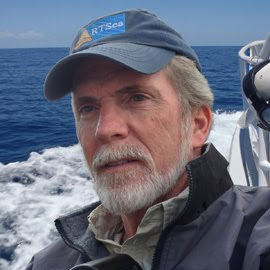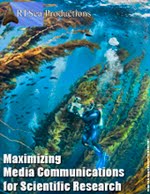 The islands that make up Bermuda lie just west of the center of the Sargasso Sea in the northern Atlantic Ocean. Further north and a bit removed from its Caribbean cousins, Bermuda has nonetheless enjoyed a fairly healthy tourist trade and is home to a variety of sea life It's aquatic abundance is due in no small part to the Sargasso Sea with its large floating mats of sargassum seaweed which provides a haven for many juvenile fish species.
The islands that make up Bermuda lie just west of the center of the Sargasso Sea in the northern Atlantic Ocean. Further north and a bit removed from its Caribbean cousins, Bermuda has nonetheless enjoyed a fairly healthy tourist trade and is home to a variety of sea life It's aquatic abundance is due in no small part to the Sargasso Sea with its large floating mats of sargassum seaweed which provides a haven for many juvenile fish species.The Pew Environment Group, as part of its Global Ocean Legacy program, is working to have a national marine park established in Bermuda, similar to marine parks found in other island nations.
“Our goal is to work with the Government of Bermuda, non-government organisations and scientists to establish a very large, no-take marine reserve to protect Bermuda’s ocean habitat within its Exclusive Economic Zone [EEZ], which extends from the islands’ coastline out to 200 nautical miles, and is part of the Sargasso Sea,” said the Pew Environmental Group, which launched the marine national park scheme in 2010.
Such a marine park would not only protect Bermuda's coastal marine resources and contribute to an international effort to establish safeguards to protect at least 10 percent of the world's oceans (I know, 10 percent is not much, but it's a start), but it would also provide protection for the Sargasso Sea and its namesake seaweed.
There is quite a variety of sea life that call the floating sargassum home, from juvenile reef fish to young turtles, invertebrates, and all of the larger predators that might feed on the juvenile populations. And it's not just animals that you would expect to find living locally to Bermuda. There are species that travel great distances to use the sargassum as a breeding ground and nursery. As an example, scientists have documented eel species coming from rivers as far away as North America and even Europe to spawn within the sargassum. The young eels mature in the Sargasso Sea and ultimately migrate back to the rivers.
Six hundred and forty miles from the coast of North Carolina, Bermuda is also surrounded by deep water which provides for a variety of deep sea life, again ranging from small larvae right up to deep-diving whales.
Bermuda might seem a bit remote on the map but it is not immune to the threats of climate change and commercial fishing. The Sargasso Sea is home to tuna, dolphin, wahoo, billfish, sea turtles, and the Porbeagle shark (just recently passed over for protection by the ICCAT). And there are thirty-six species local to Bermuda that have been declared threatened and placed on the IUCN's Red List.
“Given this highly productive ecosystem, scientists, Bermudians and others are concerned about protecting this area from emerging threats, such as proposals to harvest Sargassum for biofuel,” said Pew.
As part of the Global Ocean Legacy program, Pew will be focusing on Bermuda as home to a marine park, as well as areas in the Indian Ocean, Australia's Coral Sea, Hawaii, the Mariana Trench and the waters surrounding Pitcarin - famed for the late-17th century mutineers from the HMS Bounty who came to the remote island from Tahiti.
Here's a brief video about Bermuda's rich ocean resources, produced by National Geographic and narrated by Dr. Sylvia Earle.
Source: Bermuda News & Culture Source.

















4 comments:
Hi
Really so nice blog dear. I like this blog.. its blog looking really so cool . this is real so good work.......
Wow what a view..
It is very helpful to know about travel & tourism spot in country..
Lovely photoes..
Exilent click Dear..
Keep it up....
really a nice blog!!!
Nice Blog!!
Post a Comment